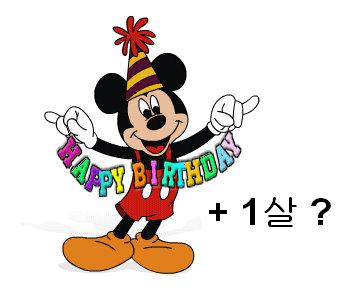Why You’ll Never Be Able to Guess A Korean’s Age
Asians, male and female alike, generally tend to do pretty well when it comes to aging—in many countries in the Far East, it isn’t uncommon to see working professionals who could probably pass for high school students in many places. Whether it is genes, the hefty emphasis they place on body and skin care, or overall healthy lifestyles, it can be difficult for people from other cultures to play the age-guessing game here.
In Korea, that is even more challenging, because of Korea’s unique method of calculating someone’s age.
Most of us turn a particular age on the day that is exactly that number of years from our birth. So if I was born on the first day of March in 1990, then today, March 1st, 2013, I turned 23. For the rest of this year, and actually until March 1st, 2014, I will be considered 23 years of age.
Koreans, however, are all considered two years older than they really are. Three months after birth, a Korean is already considered to be age 1, factoring in the 9-month pregnancy. Then, on the New Year’s Day of their first year, they are considered to be 2. So from our example above, if I was Korean and born on the first day of March in 1990, then I turned 1 on June 1st of that year. Then, on New Year’s Day of 1991, I turned 2. From then on, I add a year every New Year’s Day.
So under this method, even though today is still celebrated as my birthday, my age doesn’t change. I actually “turned” 24 on January 1st. Come January 1st, 2014, I will turn 25, while the non-Korean I share a birthdate with will still be 23.
Of course, this method opens up another can of worms: If the first birthday is considered 90-or-so days after birth, and the second is the first New Year’s Day, then what about those babies born in the last three months of the year? Does that first New Year’s they experience just not count, because they haven’t reached their 90 days yet?
In this case (which the math would suggest applies to about 25% of Koreans), the first New Year’s Day is indeed “skipped” in regards to counting age. But the age calculation quickly catches up after that. For babies in this case, the first actual birthday (as in, the anniversary of the actual date of birth), would add a year, and then the annual New Year’s Day tally would continue as per normal.
So in this example, if I was born on November 1st, 1990, I would turn 1 on February 1st, 1991. I would turn 2 on November 1st of that year, and quickly turn 3 on New Year’s Day of 1992, just as in the example above when I was born on March 1st.
Got that?
Next time you bet a drink on guessing your Korean friend’s age, don’t forget to clarify whether you’re guessing their Korean age or their other age, and if it’s their Korean age, add two!
.jpg)
